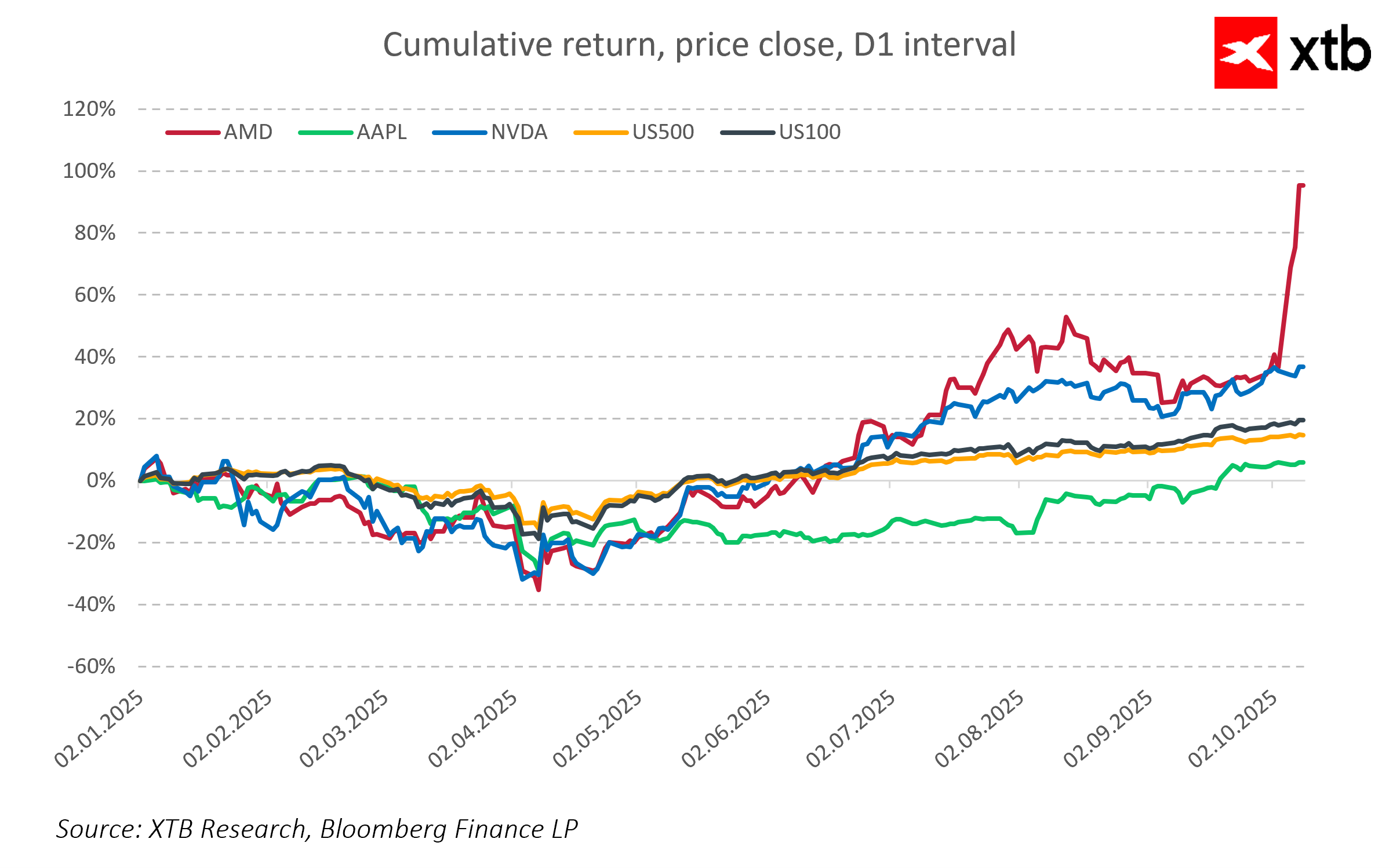- China Tightens Rare Earth Export Controls as Trade War Tensions with the U.S. Escalate
- Rare Earth Elements — The Strategic Resource of the 21st Century
- A Political Game for Technological Dominance
- China Tightens Rare Earth Export Controls as Trade War Tensions with the U.S. Escalate
- Rare Earth Elements — The Strategic Resource of the 21st Century
- A Political Game for Technological Dominance
China is imposing sweeping restrictions on the export of rare earth metals and related technologies, marking another escalation in its trade war with the United States. The new regulations, effective December 1, require export licenses even for products containing minimal amounts of these key materials. While Beijing frames the move as a measure to safeguard national security, it also puts additional pressure on global supply chains and the global tech market.
Rare earth metals consist of 17 chemical elements essential to modern technologies — from semiconductors and magnets for electric motors to batteries for electric vehicles. Although these materials are not particularly rare in nature, their extraction and processing are highly complex and expensive. China controls roughly 70% of global mining and up to 90% of processing capacity for these metals, giving it a dominant position in the market.
New Regulations — Beijing’s Response to U.S. Measures
According to China’s Ministry of Commerce, the new rules block the export of rare earths and technologies linked to semiconductor or military component production without proper approval. The restrictions also extend to equipment used in manufacturing batteries for electric vehicles. Beijing argues these steps prevent the use of such materials for military purposes but also clearly communicate its stance amid rising tensions with Washington.
Experts say the measures are aimed at the U.S. technology sector — including companies such as Nvidia, AMD, and TSMC — which rely on rare earths to produce advanced chips and components used, among other things, in artificial intelligence and high‑end electronics.
Industry Impacts
-
Semiconductor Manufacturing: Companies like Nvidia, Apple, TSMC, Samsung, and SK Hynix depend on rare earths for chip production. The new rules may delay the expansion of fabs outside China and drive up production costs.
-
Automotive & Energy Sectors: These metals are critical for producing magnets used in electric motors and for manufacturing batteries. Export constraints may push component prices higher and delay vehicle rollouts as well as wind turbine projects.
-
National Security: The prohibitions on exports for military use underscore China’s concerns about these materials being deployed in technological and military competition—especially in AI and advanced weapon systems.
Beijing’s decision to tighten control over rare earth exports is not merely a trade policy move but a strategic maneuver in global technological rivalry. China is signaling that it holds powerful bargaining chips vis-à-vis the U.S., using its dominance over strategic raw materials as leverage.
In response to U.S. sanctions targeting China’s semiconductor industry—particularly around AI and advanced chips—Beijing is demonstrating that it can retaliate symmetrically by restricting access to materials vital for producing key technological components. This geopolitical play highlights how control over rare earths has become a central element of the trade war and broader strategic competition among world powers.
As a result, Western nations are being compelled to accelerate investment in supply chain diversification and development of domestic processing capabilities. However, building independence from China’s monopoly will take time and substantial capital — posing short‑term risks to the stability of global supply chains.
China’s tightening of rare earth export rules signals a pivotal shift in global technological and economic competition. Companies and governments worldwide must brace for potential disruptions to supply chains and increased state control over strategic resources. The long-term imperative will be diversifying supply sources and advancing alternative technologies to reduce global dependency on China—ultimately boosting resilience in sectors critical to security and economic growth.
Companies like Nvidia and AMD, which have experienced massive growth in recent years, could now face significant challenges. The new export restrictions on rare earth metals may disrupt their supply chains, causing production delays and increased costs. This development is already stirring fears in the market, potentially impacting investor confidence and the future outlook for these tech giants.


Geopolitical Briefing (06.02.2026): Is Iran Still a Risk Factor?

India: New battleground of the trade war?

Another US Gov. Shutdown: What can it mean this time?

Mercosur: Farmers’ fears are exaggerated, industry triumphs - facts vs. myths


